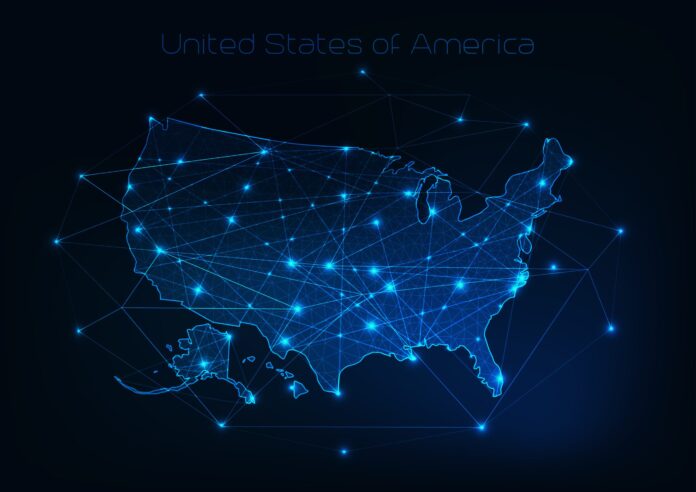NTIA holds firm that ‘close to 90%’ of materials involved in BEAD projects should be made in the United States
With more than $42 billion poised to pour out in support of broadband deployment projects across the United States, the federal government is sticking closely to its goal that most of the infrastructure materials and electronics that will go into those projects be made domestically.
The telecommunications industry has been waiting to see the extent to which a waiver would be allowed for certain products to be purchased from non-U.S. suppliers, concerned about the cost, availability and timelines of getting the materials needed for such extensive deployments. The National Telecommunications and Information Administration yesterday revealed more details about a draft waiver that it described as a “limited and targeted” that will ensure that the “majority” of the fiber broadband equipment supporting the Broadband Equity, Access and Deployment (BEAD) program are made in the United States.
“The policies recommended in this draft waiver will ensure that close to 90% of BEAD funding spent on equipment will be spent on equipment manufactured in the United States,” NTIA said in a release, specifically mentioning optical fiber, fiber optic cable, “key electronics” and enclosures. “The proposed waiver is the result of months of careful analysis of market conditions and sustained outreach to industry and stakeholders,” NTIA added.
The “Build America, Buy America” requirements were baked in to the infrastructure bill that Congress passed on a bipartisan basis in 2021.
“The justification for a firm approach to enforcement is clear. Internet for All is a once-in-a-generation investment to expand and upgrade America’s high-speed Internet networks, with $42.45 billion in funds from the BEAD program alone,” NTIA argued. “Those American tax dollars should be used to buy products made in America and to create hundreds of thousands of American jobs.”
The agency went on to add, that “There are, however, limited circumstances where a nonavailability waiver will be needed for certain pieces of broadband equipment,” and went on to acknowledge that efforts to ramp up the domestic chip supply will take too long to be leveraged for BEAD. “NTIA acknowledges that some chips may not be available in time to meet BEAD Program construction timelines,” the agency said, adding, “We’ve proposed a limited nonavailability waiver to fit these unique dynamics.”
The Commerce Department pointed to a number of developments as evidence that suppliers are responding to anticipated needs by building up domestic production. Nokia has made several recent announcements that it is the first to on-shore production of fiber-related electronics manufacturing and will that it will produce, with domestic partners, a number of items needed for fiber deployment so that they qualify for BEAD projects. NTIA also said that telecom equipment manufacturer Adtran has announced plans to expand broadband electronics production in Alabama, and that fiberoptic cable producers such as CommScope, Corning and Prysmian have expanded their capacity to meet BEAD needs.
Domestic products of Nokia’s fiberoptic electronics solutions offerings is particularly important; the company claims that its products support 70% of fiber broadband lines in North America. Lori Adams, vice president of broadband policy and funding strategy at Nokia, said that the three products which will be manufactured by partner Sanmina in Kenosha County, Wisconsin, are an optical line termination (OLT) card for a modular access node; a small form-factor OLT and an outdoor, hardened optical network terminal (ONT). Nokia also announced a partnership with Fabrinet to manufacture Nokia’s next generation multi-rate optical modules for Optical Line Terminals (OLTs) at Fabrinet’s facility in Santa Clara, California.
State and territory funding allocations from BEAD were announced in late June. Now, states and territories must submit their five-year plans to the National Telecommunications and Information Administration (NTIA) to describe how they will use that funding to close the digital divide in their respective geographies. Each participating state was guaranteed at least $100 million in BEAD funding, as part of the Infrastructure, Investment and Jobs Act (IIJA) that became law in 2021 (See the state-level breakdowns here). Nineteen states will end up with more than $1 billion through BEAD for high-speed broadband deployment, with the stated requirement to connect every American by 2030.
Stakeholders have 30 days to comment on the NTIA draft waiver proposal.

